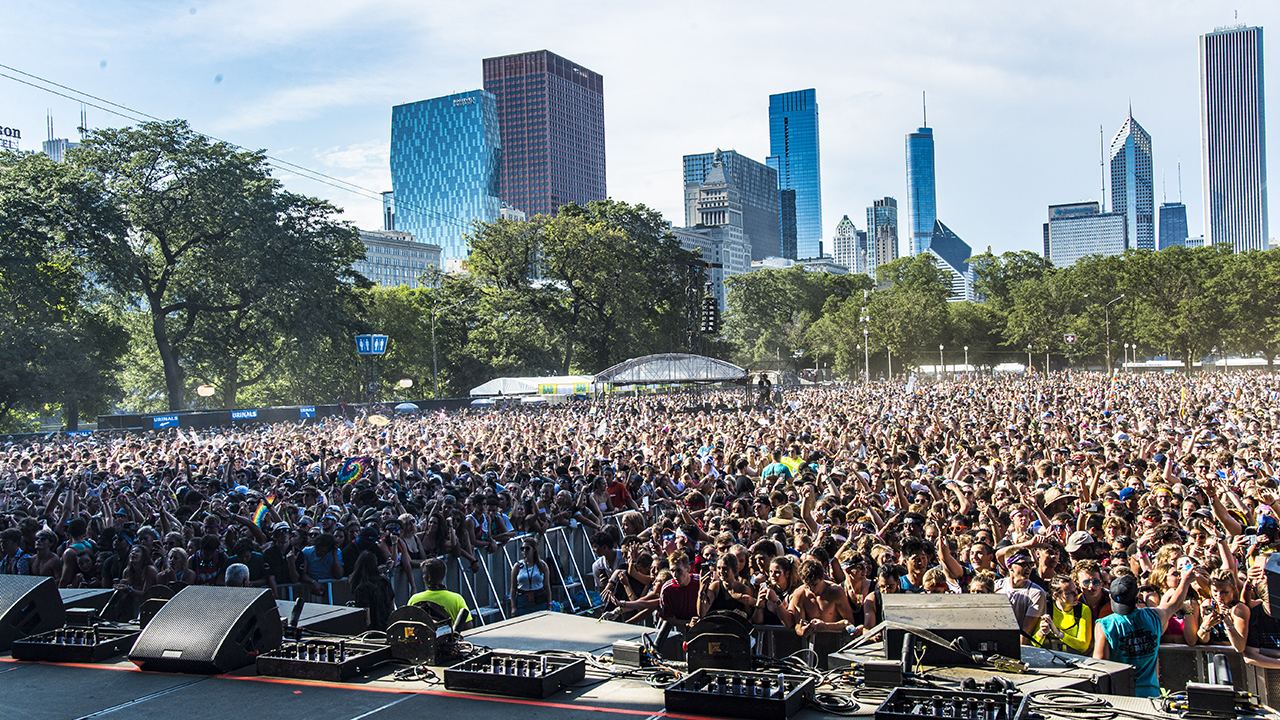Chicago business curfew, other restrictions imposed to curb sharp rise in COVID-19 cases, Lightfoot says
CHICAGO (WLS) -- Mayor Lori Lightfoot announced a curfew and new restrictions on businesses in Chicago will go into effect on Friday due to a sharp rise in COVID-19 cases in the city.
As part of the curfew, all non-essential businesses will be closed from 10 p.m. to 6 a.m. Mayor Lightfoot said the curfew will be in effect for the next two weeks.
Essential businesses, such as grocery stores, pharmacies and take-out restaurants, will be allowed to operate.
WATCH: Mayor announces non-essential business curfew, restrictions

Mayor Lightfoot said all Chicagoans should refrain from gatherings of more than six people or any social gatherings after 10 p.m.
"If we need to take further steps and move back to Phase 3 or even go back to shelter in place, I'm not going to hesitate to do that," Lightfoot said.
Liquor sales will also be stopped at 9 p.m. Bars without a food license will no longer be allowed to have indoor service.
"The rapid rise we're experiencing in COVID-19 cases across all demographics, zip codes and age groups is consistent with what public health experts and responsible leaders have been predicting for months," said Mayor Lightfoot. "This moment is a critical inflection point for Chicago, and these new restrictions and guidelines represent our ongoing effort to stay ahead of this pandemic through the data and science of this disease. Countless Chicagoans have done an outstanding job in being responsible and following public health guidance, but now we all must double-down on our commitment to our health and the health of our city in order to bend the curve and shape our future back to where it needs to be."
All other restrictions, including indoor capacity limits of 40% or 50 people within a room or space, remain in place.
"I don't want to put more restrictions in our city," Lightfoot said. "No one does, but I have to do what is right to save lives and if that means rolling back further, I will."
WATCH: Mayor Lightfoot, Dr. Arwady take questions on COVID-19 crackdown

These latest restrictions, which come three days after city officials said bars and restaurants were not driving this most recent surge, are leaving many business owners frustrated.
Mayor Lightfoot, however, said this pullback is necessary and comes at a critical moment.
"COVID-19 thrives in places and in circumstances where people let their guard down," Lightfoot said. "And as the weather cools and people move indoors, the risk of the spread rises exponentially."
The owners of Four Treys Tavern, which has been in the North Center neighborhood for more than 50 years, said they have been strict with protocols. Now, they're threatening to stay open.
"I just figured the hell with closing up, I'll just stay open," Four Treys co-owner Paul Seng said. ""Give me my license money back. If you're going to raise my taxes and all that stuff, and put me out of business, then well, it's insane."
"It's more draining for my employees," his co-owner Colleen Flood said. "That's what bothers me the most. Don't they think about the employees? How are they going to pay their bills?"
In fact, Melvin Brooks, the owner of President's Lounge in Chatham, said a broader shutdown would be more fair than the back-and-forth bar owners have endured.
"My 25 customers, we alone cannot save, we cannot turn the bend on this virus," Brooks said.
Brooks says the city license he paid $4,400 for arrived in the mail today. An official with Chicago's Department of Business Affairs and Consumer Protection declined to say if the city would consider a refund of those fees.
WATCH: Dr. Allison Arwady speaks about Chicago COVID-19 cases

The announcement comes as Mayor Lightfoot said the average number of cases has risen over the past week more than 50% to 640 cases a day.
Chicago Department of Public Health Commissioner Dr. Allison Arwady said often people will say they were in contact with people at a social gathering that may have been at a bar. Through contact tracing, the city does not have an exact percentage on transmission at bars and restaurants.
"We do not always know causation when we are doing case investigations and contact tracing," Dr. Arwady said. "What we do is, when we have a case, we ask 'Who have you been in contact with?'"
The latest crackdown is for 14 days or until the positivity rate goes consistently down Right now, it's hovering near 7 percent.
The mayor is also asking residents to gather in groups no bigger than 6. And she had a big message for city workers and their bosses.
"They must wear masks and if they don't get the message, you need to take decisive action up to and including discipline," Lightfoot said.
Dr. Arwady said large and small gatherings are "posing significant health risks."
"There is a 30% chance that someone in a group of 25 people has COVID-19. There is a 50% chance that someone in a group of 50 has COVID-19. Even getting together 10 people in Chicago, there is a 14% chance that someone has COVID-19."
Dr. Deborah Birx visited Chicago Thursday to get a look at the city's pandemic response. The White House COVID-19 Task Force member stressed there is a lot of community spread in the city and across the state right now.
She suggested using rapid tests to cut down on asymptomatic spread by identifying people with the virus sooner.





